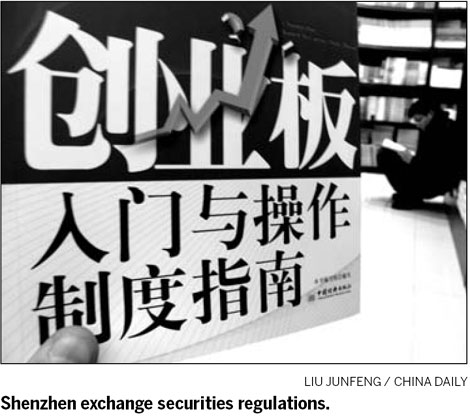Lapsed patents scuttle tech company's IPO

Red light for Goldengreen on the eve of its listing
Due to improper disclosure about patents in its prospectus, a Suzhou company was stopped from selling shares on the Shenzhen Stock Exchange though its initial public offering (IPO) was approved by the China Securities Regulatory Commission (CSRC).
Suzhou Goldengreen Technologies Ltd even issued 20 million shares, each priced at 20.80 yuan, on March 9 and went through required IPO procedures like accepting purchase applications and drawing lots.
But the company's patents were then found to have been terminated by the State Intellectual Property Office for failure to pay annual fees.
Primarily involved in making photo-conductor drums for laser printers, computer-controlled copiers and laser faxes, the company said it had five patented technologies in its prospectus for an IPO road show. The statement was repeated in other documents.
Two patent applications also claimed in the prospectus were found to have been withdrawn by the company.
After a patent lapses, it enters the public domain and can be used free of charge.
Suzhou Goldengreen cited "negligence in work" as the reason for the omissions, according to National Business Daily.
Half of the company's products continue to use the lapsed patents, China Business News reports.
On the night before its original first trading of March 19, Goldengreen announced that regulators required an investigation before it could take the final step as a publicly traded company.
Goldengreen then filed a second application for listing on the Shenzhen exchange on June 11.
Two days later, the CSRC ruled that because the five patents and two patent applications described in the prospectus and other documents were invalid, the company's IPO could not proceed.
The Suzhou company announced last Wednesday that it would return 417 million yuan in principal and interest to purchasers.
The IPO's sponsoring underwriter and a law firm involved in the case were also been punished for their misrepresentation and failure to act with due diligence.
Those who verified related documents, including two representatives of the securities underwriter and three lawyers, were disqualified from signing documents related to securities for one year.
China Daily
(China Daily 06/30/2010 page17)


















